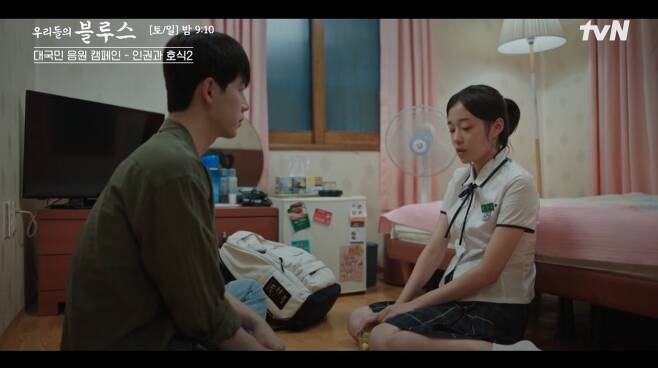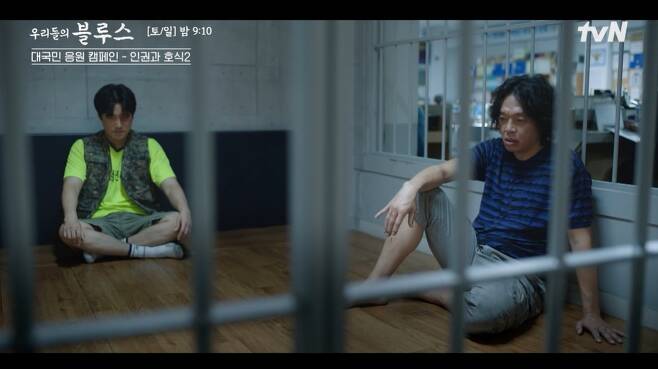

I hope everything that is alive is happy.
It's a phrase full of humanism: a sentence that was delivered by the writer Noh Hee-kyoung, who shouted "Now, the unloved, all guilty" when he released his new work in four years. The title of the new Drama is the omnibus Drama, which tells the life stories of various people in the background of TVN <Our Blues> and Jeju Island sea. Noh Hee-kyung, the 'master of humanism', has melted deep insights into life and warm humanity into Drama.
That's why viewers were sympathetic, reliant and comforted by Noh Hee-kyung's Drama; it's inevitable that Noh Hee-kyung was drawn to Jeju Island. "Jeju Island is connected to people whose neighbors are relatives or acquaintances," so it is very natural to "be involved in each other's lives." This is called "party culture (the concept of everyone being a relative), and there would have been no place as suitable as Jeju Island to tie up 14 key figures.
In the works, top stars such as Lee Byung-hun, Shin Min-ah, Uhm Jung-hwa, Cha Seung-won, Lee Jung-eun, Han Ji-min, Kim Woo-bin, Kim Hye-ja and Goh Doo-shim were all out. This amazing casting was possible because Drama's form was an omnibus, and Noh Hee-kyoung was a great writer who was respected by actors. It started with 7.324 percent (based on Nielsen Korea) in the first session and recorded 7.913 percent in the seventh, slowing after 9.182 percent in the fourth, but it rose again.
But the viewers' attention changed over the five or six episodes: the episode "Prince and the Presence" about "Youth Pregnancy." The 18-year-old lord (Roh Yoon-seo) finds out she is pregnant and visits the hospital for an abortion, but she hears the fetal heart and decides to give birth. There was a lot of talk about touching the sensitive problem of 'juvenile pregnancy' in the first place, but it was gathered that it was no longer a problem to hide.
The problem broke out on the other side: some viewers were disconcerted by the anachronism that the process of giving up the lord's pregnancy was cliché. Hwang Jin-mi, a critic, pointed out that Drama is standing on the side of the prefecture, saying, "While I seem to respect the decision of women, I am alone in the baby shop and I am a child." He also pointed out that the character of the lord collapsed.
A more painful criticism is that the episodes of lord and prefecture eventually serve as a tool to lead to human rights and exorcism episodes. Hwang Jin-mi wrote, "The birth of the lord is a reconciliation between the fathers of the soul after a great conflict." "The story of the two fathers who raised the child alone in the process will be poured out again." The role of the 'party community', which will hold the lord and the prefecture's children, will be emphasized once again.
What kind of Drama will be remembered? In the filmography of Noh Hee-kyung, what kind of Drama will Our Blues remain? Humanism and compassion may have some inevitability to conflict, and his values may have been 'old' over the years. But still the text Noh Hee-kyung is worth reading, and the message he throws is significant in our society.